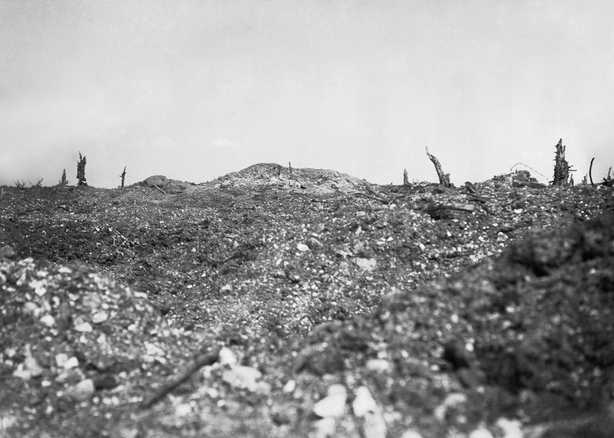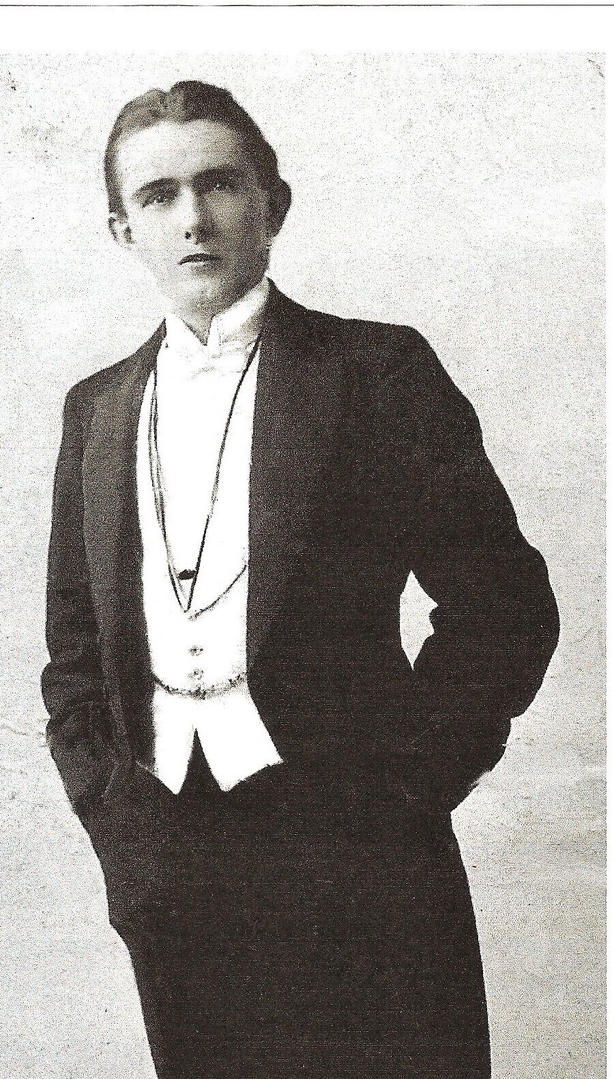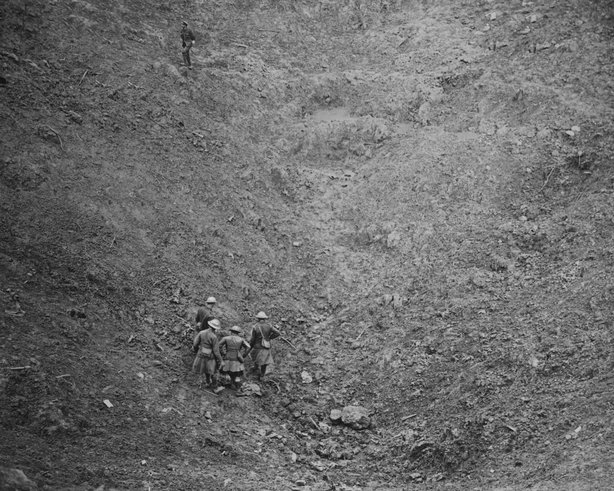In the third part of our Family Histories series, Stephen Mooney recreates the dramatic final days of his great-uncle Edward Greer in the Battle of the Somme.
My great-uncle Edward Greer from Bray Co Wicklow. He moved to London in 1915 and enlisted in the 19th London Regiment. He died at the Somme on Friday 29th of September 1916. This is his final three days.
Wednesday 27th September 1916
The 19th London Regiment moved into the support trenches of Bazenten-Le Grand on the Somme just beyond High Wood.
Thursday 28th September 1916
Guides met Edward and the 19th London Regiment and brought them up the line to relieve the 2nd King's Royal Rifle Corps .The relief of a unit after its time in the front by a fresh one was always an anxious time, as the noise and obvious activity increased the risk of attracting enemy attention in the form of shelling, machine-gun fire or even a raid at the very time when the manning of the position was changing. The relief took several hours because everything had to be carried up by hand, this included rifle ammunition, machine-gun ammunition and trench-mortar ammunition, all of which was heavy and awkward to handle.
They also carried planks, water, sandbags, bombs, and probably worse of all, coils of barbed wire which were both heavy and dangerous, taking at least two men to carry each of them on a stick between them. The relief was complete by 11.30pm.

Once the incoming unit had relieved the outgoing one, various precautionary actions would be taken. At least one man in four at night, and perhaps one in ten by day, were posted as sentries on look-out duty, often in saps dug a little way ahead of the main fire trench. They would listen for sounds that might indicate enemy activity, and try to observe such activity across no man's land. The other men would be posted into the fire trench or support trench, in sections. Unless they were assigned to specialist tasks such as that of signaller or machine-gunner, men would inevitably be assigned to carrying, repair or digging parties, and were sent under cover of dark to put out or repair barbed wire defences.
Friday 29th September 1916
Edward had grown up very quickly over the past two weeks and was very aware that his life could be snuffed out in an instant. Sitting in the front line on a firing step made Edward consider life much more seriously. He found himself thinking about his mother and father back home in Ireland, particularly as they had three sons involved in this war. His brother Jack, a soldier in the 2nd Royal Irish Rifles, went into action almost immediately in August 1914 and was now a prisoner of war some where in Germany. The whereabouts of his other brother Joseph were unknown to him. He found himself thinking about death, dying, being dead. His biggest fear was of being maimed. He had seen enough shattered bodies to realise that, this was a sort of hell that he could do without. If he was to go, he prayed that it would be quick.

At 5.00pm the artillery opened up lobbing shells on the German lines. The ground around Edwards’s feet shook and he thought the trench might collapse on top of him. He looked over to the German held trenches at Flers, and was glad that he was not under that bombardment.
The task of the heavy artillery was to annihilate the trench system. Starting first at the strong front line, and then working back along the communication trenches, through to the support line, and finishing with the reserve trenches. The Field artillery meanwhile targeted the dense barbwire protecting the German front line, hoping to cut a path through it for the assaulting infantry.

At 5.45 the barrage stopped and Edward and about 20 members of his platoon slipped into no man’s land. The plan was for the 19th to bomb their way along the Flers line and to join up with the 20th London Regiment. Moving from shell hole to shell hole Edward’s platoon met with heavy German resistance. Having already lost High Wood and pulled back to the Flers line, the Germans were not going to be moved. After two hours of fierce fighting, both London Regiments were forced back to their original positions.
The 19th London War Diary for Friday 29th September 1916 contains the following entry.
"Enemy appears to be holding this point in great force and was exceptionally well supplied with bombs. During the night very heavy shelling of Flers line. Owing to darkness and the fact that several men were buried, correct estimate of casualties was impossible."
Edward Greer Pte 5494 died on Friday 29th September 1916. His body was never found. He is commemorated on the Great War Memorial in Bray, Co Wicklow and on his father’s and mother’s grave in Little Bray, Co. Wicklow. His name again appears with other members of the 19th London Regiment in the church of St Pancras Euston London, and finally on the Thiepval Memorial to the missing soldiers of the battle of the Somme in France. He was 22 years of age.
Do you have a story to tell about your own family's experience of significant historical events? Find out how to contribute it here.
The views expressed here are those of the author and do not represent or reflect the views of RTÉ










































